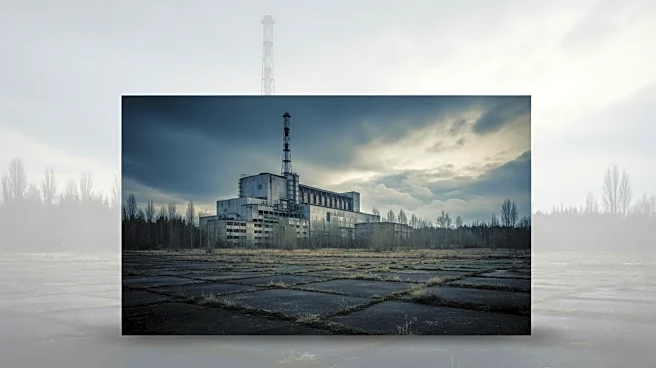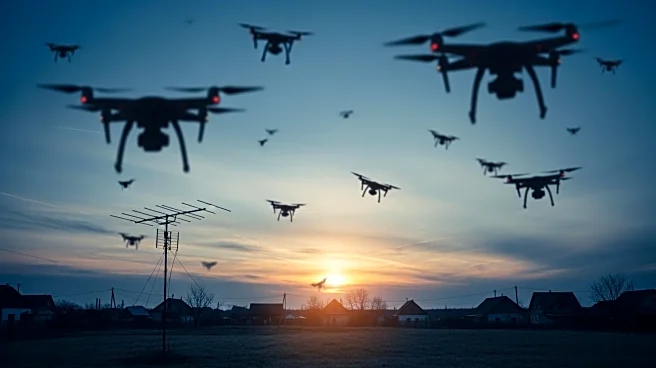What is the story about?
What's Happening?
President Volodymyr Zelenskyy of Ukraine has accused Russia of posing a global security threat following a shelling attack that cut power to the Chornobyl nuclear plant. The attack disrupted the power supply to the plant's confinement structure, which houses the damaged reactor core. Emergency diesel generators are currently providing electricity to prevent a meltdown. This incident follows a similar power loss at the Russian-occupied Zaporizhzhia nuclear plant. The United States is reportedly considering providing Ukraine with intelligence for long-range missile strikes on Russian energy infrastructure, aiming to deprive the Kremlin of revenue. European leaders have expressed concern over Russia's actions, which they describe as a hybrid war affecting multiple countries.
Why It's Important?
The disruption at Chornobyl highlights the ongoing risks associated with the conflict between Ukraine and Russia, particularly concerning nuclear safety. The potential for nuclear incidents poses a significant threat not only to Ukraine but to global security. The U.S. involvement in providing intelligence for strikes on Russian infrastructure could escalate tensions further, impacting international relations and energy markets. European countries are increasingly wary of Russia's tactics, which could lead to heightened security measures and further sanctions. The situation underscores the fragile state of energy security in the region and the broader implications for global energy supply and geopolitical stability.
What's Next?
Ukraine may receive enhanced intelligence support from the U.S., potentially leading to more targeted strikes on Russian infrastructure. European nations are likely to increase their security measures and continue discussions on how to counteract Russian aggression. The international community may see increased diplomatic efforts to resolve the conflict and prevent further nuclear risks. The situation could lead to more stringent sanctions against Russia, affecting global energy markets and international relations.
Beyond the Headlines
The ongoing conflict and nuclear threats raise ethical concerns about the use of energy infrastructure as a weapon in warfare. The situation may prompt discussions on international nuclear safety standards and the need for robust global frameworks to prevent such incidents. The geopolitical dynamics in Eastern Europe could shift, with countries reassessing their alliances and security strategies in response to Russian actions.














